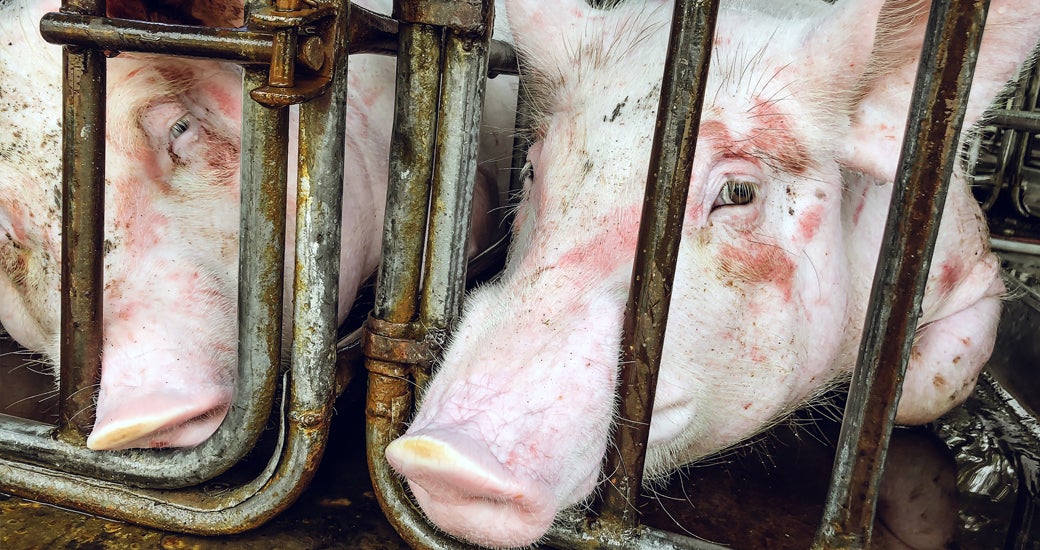

- The majority of federal COVID-19 relief funds for farmers have gone to cruel, inhumane factory farms and industrial agriculture companies.
- Small, higher-welfare farms across the country are struggling to stay afloat with limited government support, even though they create better conditions for animals and workers.
- Federal funding should be dedicated to building a more humane and sustainable food system.
- You can help advocate for a more compassionate food system by urging your members of Congress to support the Farm System Reform Act.
The Small Business Administration (SBA) recently revealed that the majority of the Paycheck Protection Program (PPP) agricultural relief funds, which provide businesses with loans to keep them afloat during the COVID-19 crisis, went to industrial agriculture companies and factory farms. These large corporations and factory farms raise animals in cruel, unsanitary conditions that not only cause enormous animal suffering but also increase the risk of future pandemics and public health crises. Meanwhile, more responsible, higher-welfare farmers across the country continue to struggle through this economic and public health crisis with limited government support—despite their practices better protecting animals, workers and public health.
Though PPP payments are meant to support small businesses affected by COVID-19, the data show large-scale industrial farms raising chickens, pigs and cows in intensive confinement—including cruel battery cages, gestation crates and barren feedlots—received payments amounting to hundreds of millions of taxpayer dollars. PPP payments made to animal agriculture include:
- $5-10 million to one of the largest egg companies in the country, whose operations include battery cage systems.
- $2-5 million to two egg operations with well over one million egg-laying hens each.
- $2-5 million to an industrial dairy farm with more than 13,000 cows and prior Food and Drug Administration (FDA) violations for selling adulterated products and keeping animals in such inadequate conditions that drug residues were likely to enter the food supply.
- $2-5 million to the largest pig farming corporation in Tennessee, which uses gestation crates.
- $5-10 million and $2-5 million to multiple contract pig farmers using industrial standards, including gestation crates.
- $2-5 million to multiple industrial cattle feedlots.
It is incredibly disappointing that despite the ASPCA’s call for federal COVID-19 relief funding to be used to support higher-welfare farming, factory farms received the vast majority of PPP funds.
Federal funding should be dedicated to support the growth of and transition to a more humane food system, not to maintain the inhumane factory farming system. The Farm System Reform Act, ASPCA-supported legislation introduced in Congress by Senator Cory Booker (D-NJ) and Representative Ro Khanna (D-CA), offers a roadmap toward a more humane nation free from factory farming, including immediately prohibiting the creation or expansion of large factory farms and requiring that these facilities end production by 2040. Importantly, the bill offers support to help farmers transition to more humane and sustainable alternatives.
Take action today to help us pass this important legislation and build a more humane, healthy and sustainable food system.
Source: Read Full Article